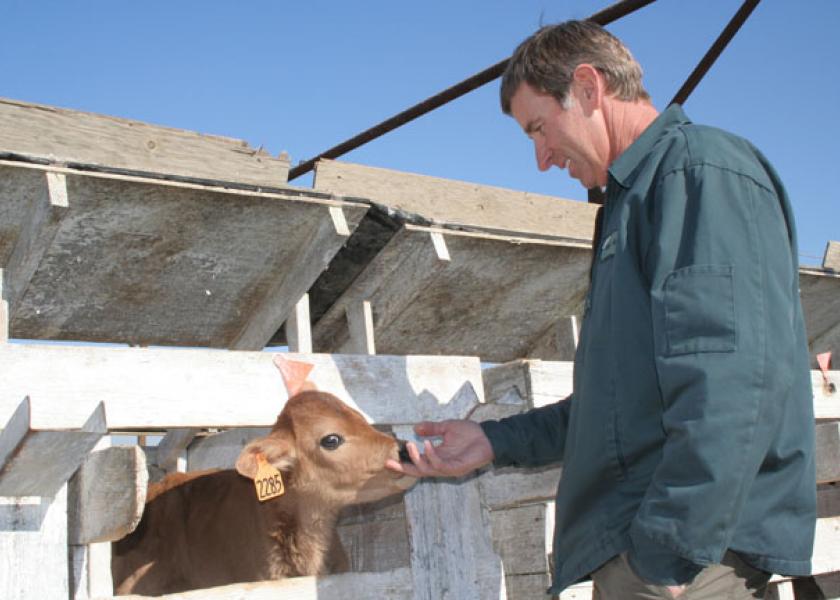NMPF CEO Joins American Humane Association, Other Food Producers in Reviewing Importance of Responsible Food Animal Production

Jim Mulhern: A commitment to humane care is not only good for dairy cows but for consumers and dairy farmers as well.
Source: National Milk Producers Federation
WASHINGTON, D.C. – National Milk Producers Federation President and CEO Jim Mulhern yesterday joined the country’s oldest humane animal treatment organization, a top chef and others involved in food production in a discussion about the commitment that farmers are making to proper animal care.
Mulhern represented the dairy industry at a Capitol Hill briefing themed “The Humane Table, Celebrating the American Heartland” organized by the American Humane Association.
According to AHA President and CEO Robin Ganzert, the briefing was meant to “celebrate and give thanks to those working to build a better world for people and animals” and to encourage support for humane farming practices, especially during the upcoming holiday season. Mulhern said a commitment to humane care is not only good for dairy cows but for consumers and dairy farmers as well.
“America’s dairy farmers have a long history of providing excellent care to their dairy cattle,” Mulhern said. “In addition to the moral imperative of quality animal care, well-treated cows are the key factor in the production of high quality milk upon which diary farmers’ livelihoods depend.”
“Simply put,” Mulhern added, “what’s good for cows is good for the farmers who milk those cows. And this industry-wide commitment to proper animal health care provides millions of consumers with a safe, wholesome high quality milk supply.”
NMPF has led the development since 2008 of an industry-wide dairy animal care program. Called Farmers Assuring Responsible Management, or FARM, it combines a comprehensive set of best practices with education, evaluation and third-party verification to assure the standards are being adhered to on farms. Today, nearly 80 percent of the milk produced in the United States is produced by farmers meeting those standards.
NMPF recently improved the reach of the FARM program by requiring all farms that supply companies participating in the program be enrolled and participate in evaluations of their practices.
The American Humane Association, founded in 1877, directed consumers to its website, which lists more than 40 major dairy, egg and meat producers certified as meeting AHA humane treatment standards. The AHA-certified label represents approximately 8,000 individual farms.
“We must end abuse and discourage poor farming practices,” said AHA President and CEO Robin Ganzert. “But it is also important to praise those who get it right and encourage other farmers and ranchers to follow best practices.”
AHA also released a survey showing overwhelming support for humanely raised foods and unveiled a public service announcement urging all Americans to support humanely raised foods.
Also participating in the briefing were prominent Sonoma County, California Chef Douglas Keane, Animal Agriculture Alliance President and CEO Kay Johnson Smith, Eggland’s Best CEO Charles Lanktree and several individual farmers.
The National Milk Producers Federation, based in Arlington, VA, develops and carries out policies that advance the well-being of dairy producers and the cooperatives they own. The members of NMPF’s cooperatives produce the majority of the U.S. milk supply, making NMPF the voice of more than 32,000 dairy producers on Capitol Hill and with government agencies. Visit www.nmpf.org for more information.







